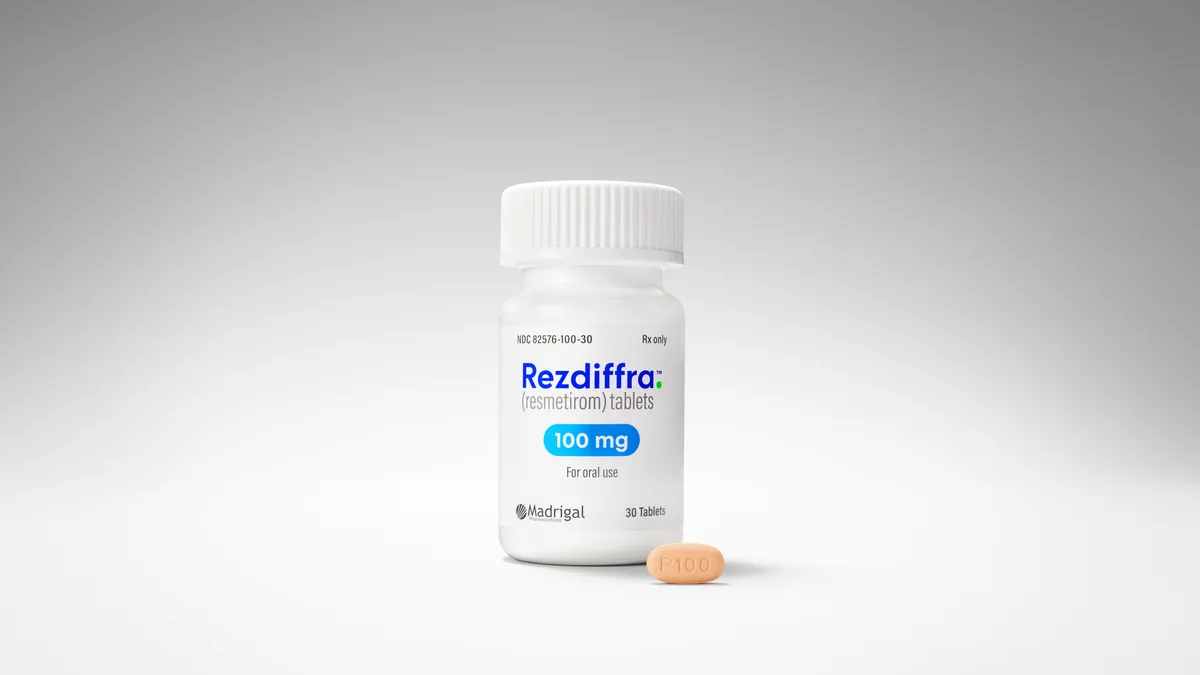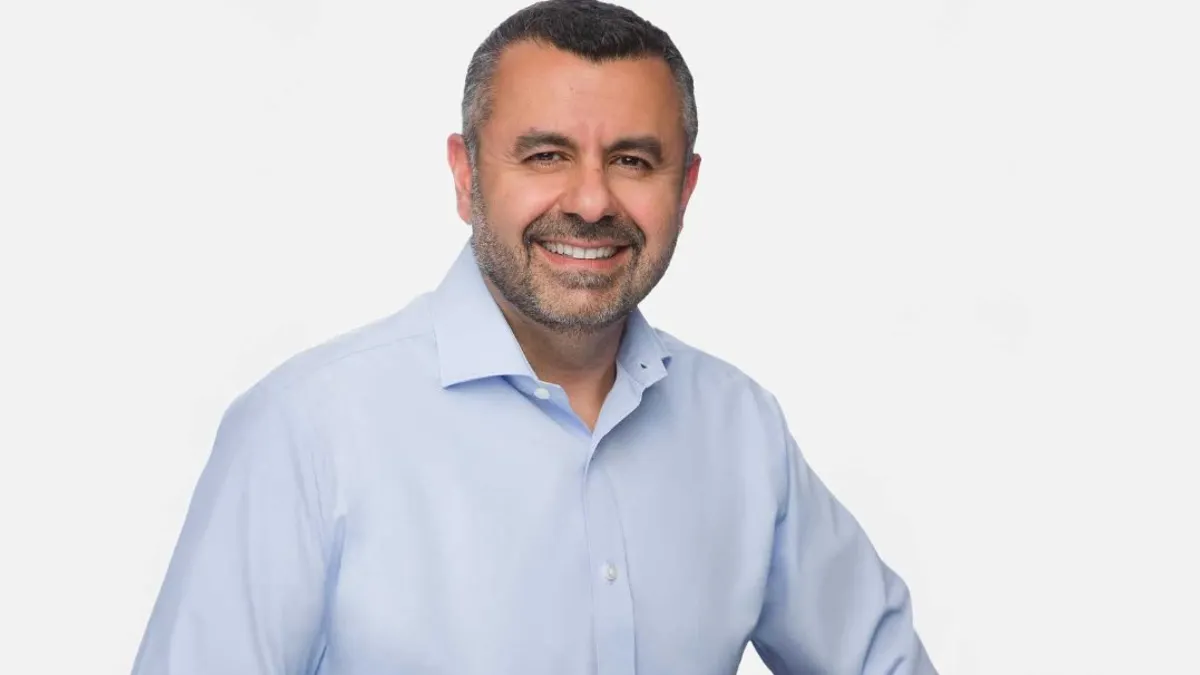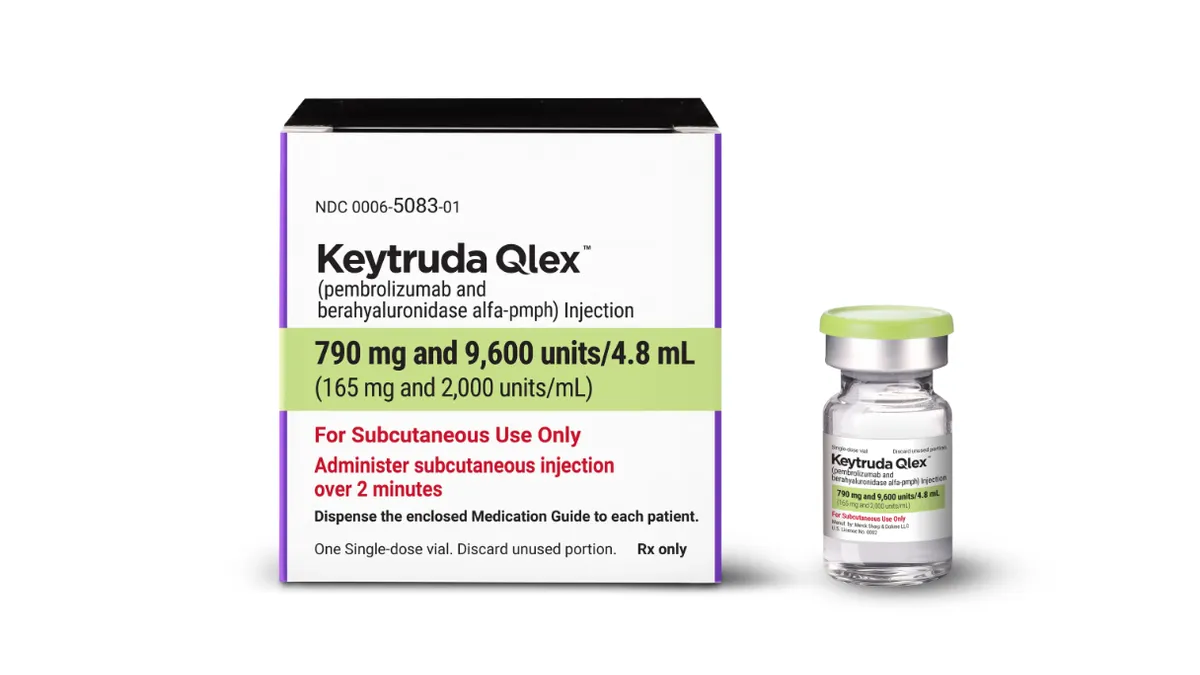FROM BEDSIDE to the SALES SIDE
Making the Switch from PATIENT CARE to SALES and MARKETING
BY ELISABETH PENA
A more stable lifestyle, an outlet for creativity, and the ability to impact a larger number of patients are some of the reasons a growing number of healthcare professionals are making the move from the bedside to the sales side.
In what has become a growing trend in the life-sciences industry, more and more companies are tapping the professional side of the business — physicians, nurses, and pharmacists are filling roles in marketing and sales. Companies are capitalizing on the inherent knowledge and reputation of these professionals for more in-depth marketing communication efforts.
“During the past 10 years to 15 years — in terms of marketing practices — there has been increased focus on understanding patients and physicians as consumers,” says Joyce Emerson Cleary, RN, BSN, MBA, a former practicing nurse and current executive director of managed markets and medical sciences services at Ventiv Health U.S. “There will be growth in more patientfocused marketing and sales techniques. Healthcare providers who are able to communicate with patients and bring what they have done in the healthcare environment into the sales and marketing environment are going to be of great benefit to the pharma industry. This is going to be a growing area of interest.”
Raghunath Tantry, B.Pharm., MBA, pharmaceuticals industry analyst at Frost & Sullivan, also has observed the trend toward hiring qualified healthcare professionals to fill sales positions.
“One of the reasons for this trend is that the field training required by these professionals is considerably less and they pick up new medical information very fast,” Mr. Tantry says. “Healthcare professionals who become sales people and are required to sell and detail products to doctors can be trained by the company very quickly.”
An added advantage of hiring qualified healthcare professionals is that they are immediately comfortable with speaking to other medical professionals, Mr. Tantry says.
Chris Bogan, president and CEO of Best Practices LLC, agrees that healthcare professionals are a favored talent source for some pharmaceutical companies.
“Clearly healthcare professionals are one of the top and preferred talent pools,” Mr. Bogan says. “People coming out of healthcare tend to be more comfortable with scientific information, technical information, human service, and empathy — all critical cornerstones for pharmaceutical promotions.”
In addition to the benefits a healthcare professional can bring to a sales call is the expertise they contribute to marketing activities.
“A key benefit of having these professionals inhouse is their abili ty to challenge current sales and marketing activities,” says Ginger Gregory, Ph.D., VP of human resources at Novo Nordisk Pharma ceuticals Inc. “Their handson clinical experience can help us improve our healthcare products and educational materials for the benefit of our patients.”
Jeff Chomiuk, general manager of clinical services at Catalina Health Resource and a former practicing pharmacist, agrees. “We are the conduit between the retailer and the manufacturer. Coming from a retail pharmacy background, I have a good understanding of what retail is looking for and how this information affects the marketing. Having a good understanding of the retail side of the business enables a health care provider to deal with the manufacturer’s needs and to develop value-added programs for the retailer. Everybody wins. The patient wins, the retailer wins, and the manufacturer wins — but only if the healthcare professional has a good understanding of all the different pieces from all the different sides.”
The industry is taking note of the advantages of having medically trained professionals in sales roles and is beginning to target these groups when recruiting.
“I have noticed an increasing trend of healthcare professionals moving into sales and marketing,” says David McCaleb, VP of sales and marketing at CV Therapeutics Inc. “The company is doubling in size this year and most of the people we will hire will have healthcare experience. I will be looking for people who have strong communication skills, who want to be empowered, and who want to reach out to patients.”
Mr. McCaleb says in the end, the industry’s business is communicating effective patient management and people who have been trained in patient management have a lot to contribute to sales and marketing.
BOX:
Turning on the switch
The following is a list of the core skills or competencies that an individual leaving the healthcare setting would need when transitioning to a sales or marketing role within a pharmaceutical company.These are the competencies thatVentiv Health has developed from assessing the attributes of its high achievers.
RELATIONSHIP MANAGEMENT
Ability to develop rapport with others and recognize their concerns and feelings;build and maintain long-term associations based on trust; ability to help others.
PLANNING,PRIORITIZING, ANDGOAL SETTING
Ability to prepare for emerging customer needs;manage multiple projects; determine project urgency in a meaningful and practical way; use goals to guide actions and create detailed action plans; organize and schedule people and tasks.
INITIATIVE
Ability to bring about great results from ordinary circumstances; prepare for problems or opportunities in advance; transform leads into productive business out comes; undertake additional responsibilities and respond to situations without supervision.
INFLUENCE AND PERSUASION
Ability to convince others in both positive and negative circumstances; use tact when expressing ideas or opinions; present new ideas to authority figures; adapt presentations to suit a particular audience; respond to objections successfully.
DECISION MAKINGAND PROBLEM SOLVING
Ability to take action in solving problems when exhibiting judgment and a realistic understanding of issues; ability to use reason, even when dealing with an emotional topic; review facts and weigh options.
CONTINUOUS LEARNING
Ability to stay informed of current industry trends; learn and apply new concepts and demonstrate career self reliance; identify own areas of opportunity and set and monitor self-development goals.
COMMUNICATION
Ability to clearly present information through the spoken or written word; read and interpret complex information; talk with customers or clients; listen well.
Source: Joyce Emerson Cleary,RN,BSN,MBA,executive director, managed markets and medical sciences services,Ventiv Health U.S.
MOTIVATING FACTORS
According to Mr. Bogan, there are four major motivating issues that lead healthcare professionals to make the switch to the sales and marketing arena — avoiding burnout, making more money, expanding their role beyond the officeservice environment, and having more flexible and consistent work hours.
“Sales and marketing can be a very dynam ic and satisfying career,” Mr. Tantry says. “These roles involve talking about a number of products in detail and using the professional training they received in school, which means that they are still using the knowledge they have gained. Additionally, they get to travel and meet with a cross-section of doctors, pharmacists, and nurses.”
Dr. Gregory agrees that healthcare professionals want the chance to use their knowledge to help more patients from the business side. “Healthcare professionals are motivated by the opportunity to transfer their healthcare related expertise into the business sector,” Dr. Gregory says. “The sale and distribution of drugs and devices demand the clinical expertise and perspectives that these individuals bring. In doing, so they have the unique ability to help improve patients’ lifestyles and enhance their own careers.”
In addition, healthcare professionals look to marketing positions as a way to impact a greater number of patients, as well as a chance to put variety into their professional lives.
“The marketing environment provides more independence and broader opportunities than most healthcare environments — as well as greater potential for the person to have a significantly greater impact on patient care,” Mr. McCaleb says. “Working inside the industry, a healthcare professional can have an impact on tens, thousands, or millions of patients by bringing a product to the market, rather than the few patients he or she might see on a daily basis. Doctors and nurses also enjoy the travel, broader professional exposure, and the chance to work with more of their peers.”
Although some professionals are motivated to switch because they have a keen interest and are drawn to the marketing side of healthcare, others switch because they are no longer enamored with their chosen professions.
“In some cases, these professionals are escaping situations that they had enjoyed before, but do not any longer in the current healthcare provider environment,” says Steve Corwin, senior VP at Regan Campbell Ward. “Some professionals make the switch based upon dissatisfaction with the job, long hours, and beaurocracy in dealing with managed care and other payers.”
Different healthcare groups — physicians, pharmacists, nurses — are motivated by differ ent factors that might lead them to make the switch to the industryside of the business.
“The practice of pharmacy, especially in the retail setting, can become somewhat mechanical over time,” says Al Infranco, R.Ph., former ly a practicing pharmacist and currently senior sales director at Catalina Health Resource. “The most rewarding aspect is certainly patient care, but filling prescriptions is not overly motivating for many pharmacists. A lot of my colleagues have moved on to more challenging opportunities in medicine or business.”
Mr. Bogan points out that nurses are more likely to switch to seek pharmaceutical-based careers where they can make more money, whereas financial concerns generally are not as important to doctors.
For Mike Siegal, M.D., Ph.D., a practicing physician and medical strategist at Common Health, the motivation to move beyond practicing medicine was a midlife change and a chance to expand his horizons. In addition to holding a marketing role at the healthcare advertising agency, Dr. Siegal continues to see patients.
“I decided a number of years ago I wanted to practice medicine in a certain way, which is not a volume practice, but a niche private practice,” Dr. Siegal says. “I don’t deal with managed care or insurance — I deal with private patients who are interested and willing to see a doctor who is going to be available 24/7. That takes a lot of time, and I can’t see 35 patients in a day and I wouldn’t want to. I needed to find an alternative to augment my practice and that is one of the factors that led me to marketing, which is a much happier place for me to be.”
The changing face of the healthcare indus try and the constraints of health insurance and managed care also were motivating factors for Jim McAlea, VP at Brennan Sales Institute, who had completed premed training when he decided to take the sales route.
“Things were changing in the medical industry, and I had friends who were doctors and they were getting frustrated with managed care,” Mr. McAlea says. “I decided to take a cou ple of years off and get into medical sales, and I found it extremely rewarding. I could go into an orthopedic surgeon’s office and show him prod ucts that could help him improve patient care during a surgical procedure. In essence, I was practicing what I learned in premed and I was interactive in the medical industry, but I could go home after a 50-hour work week and I didn’t have to worry about malpractice.”
QUOTE:
We have gotten to a point where sales and marketing has merged with the healthcare professional and is much more aligned with a healthcare professional’s needs — the sales and marketing of products are readily seen as being able to be performed by a healthcare professional. JOYCE EMERSON CLEARY
ESSENTIAL SKILLS
Although healthcare professionals have at least four years of higher education behind them, entering the sales and marketing arena requires them to hit the books again to learn the nuances of sales and market ing. While a healthcare professional may be motivated to make the switch, a certain set of skills is necessary to be successful on the business side of the industry.
“I don’t think anyone who is a healthcare provider can automatically move into a mar keting or sales position,” Ms. Cleary says. “People who can’t communicate and don’t really understand what their goal is often don’t succeed. A marketer or sales person has to be self-directed; it’s not a matter of just coming in and performing certain tasks every day as is often the case in a physician’s office or pharmacy.”
Mr. Bogan agrees that healthcare professionals cannot enter the marketing field without some training.
“If healthcare professionals expect to move from a nursing role into a sales professional role and skip the training, that is not going to happen,” Mr. Bogan says. “They still have to go through the typical four to eightweeks of training. They will be much more comfortable because they are coming from a scientific back ground, but they may have difficulty with presentation skills, a highly structured work environment, or an execution-oriented format.”
Experts say although healthcare professionals will be at ease with the scientific and clinical aspects of sales and marketing, certain skills are required to translate that knowledge into sales.
“People who are good at marketing and sales have good interpersonal skills,” Mr. Corwin says. “That is the important skill set. If sales people don’t have good people skills, no matter what their professional degree is in, I don’t think they are capable of doing a very good job in the sales area.”
According to Mr. Chomiuk, one of the main skill sets a person needs in sales is the ability to build trust and relationships.
“If a person is outgoing, likes dealing with people, is honest, and is a good communicator, he or she will make a sales call more productive when dealing with a purchaser or someone else at retail,” he says.
According to Mr. McCaleb, outside sales positions require strong verbal communications skills, while positions inside the company rely heavily on written communications skills.
In addition, he points out that healthcare professionals, depending on their particular area of expertise, will require different and specific types of training.
The healthcare system is a very structured environment — professionals have certain roles and often don’t step outside of their functional area of expertise.
For example, a nurse or a pharmacist coming from the healthcare system into a sales rep role, might be in the unfamilar role of bringing new information to doctors and providing them with insights and recommendations.
According to Mr. McCaleb, a nurse may not have been accustomed to that type of interaction. In a sales role, he or she has to become more comfortable and develop appropriate communication skills to effectively interact with the physician more as a peer.
For a healthcare professional making the switch, in addition to learning new tasks and skills relevant to sales and marketing, there must be a shift in the thinking process.
“The learning curve involves adapting to the business orientation of the patient/health care professional relationship,” Dr. Gregory says. “It’s a matter of learning how to package one’s clinical reasoning for using a company’s products into a sales and marketing perspective that appeals to both the emotional and logical sides of a patient’s motivations.”
Ms. Cleary found that the biggest hurdle she faced when she moved from a hospital environment to a fieldbased role was time management and understanding the audience.
“Pharmacists, nurses, and physicians who have worked in a hospital or in a clinical role can transfer easily into a marketing position,” she says. “But there is a learning curve — especially with the sales cycle and under standing how to communicate with people.”
According to Mr. McAlea, positions in healthcare that involve a lot of patient inter action are thought to be the most compatible with a sales and marketing switch.
“The nursing side is where I’ve seen a lot of success with the switch,” Mr. Corwin says. “Nurses are generally very effective in communicating both at the patient and physician level, although physician communications often take another form.”
The motives behind migrating from the professional side to the business side vary among the different groups of healthcare professionals.
“The motivation for a doctor to get into sales is different from that of a pharmacist or nurse,” Mr. Tantry says. “The image that a doc tor has in society differs from the image of a pharmacist or nurse. The pharmacist is one step away from the industry, while the nurse bridges the patient’s and doctor’s therapy needs. However, many doctors are quick to effectively fill medical adviser and product manager positions.”
According to Mr. Bogan, nurses, physician assistants, pharmacists, and others who served in frontline staff positions are most likely to fill the role of a sales professional. He says doctors typically do not enter the field as sales professionals; they usually go into roles that lever age their medical degree.
QUOTE:
Healthcare professionals making the transition are going to be able to hit the ground running, but they are still going to have to master product knowledge, refine their selling skills, and then work their way up in the organization. CHRIS BOGAN
QUOTE:
In some therapeutic areas having a professional healthcare degree can have more of an impact than in others, given good marketing and selling skills. People like to do business with people they have things in common with. STEVE CORWIN
For doctors, no matter what role they fill, those who make the switch are additionally rewarded by a sense of well being, Dr. Siegal says.
“It is very gratifying to be considered as a source for value-added information,” he says. “One of the frustrating things about many of the structured jobs that are available for physi cians is that they are often positions that are mandated by regulations, such as a medical director in a hospital or in a HMO. There is the feeling in those organizations that sometimes they wish the doctor would just go away. In a marketing position, no one is mandating that a doctor is needed, so the contribution I make is valued and that is a very nice feeling.”
Mr. McAlea says the success of healthcare professionals in marketing stems from the satisfaction people have in their new position and the feeling that they are a valuable resource.
“Individuals that go from healthcare into sales are very successful because it is rewarding to them,” he says. “They are still practicing patient care, but through other doctors and nurses via sales. They give healthcare providers valuable information and are regarded as a resource.”
CREDIBILITY PLUS
Sales people with a medical background may have a perceived increased sense of credibility, especially for the sales-call aspect of the job, experts say.
“A healthcare professional brings the credibility and esteem of science and research to the industry,” Dr. Gregory says. “Most of the sell ing that goes on with pharmaceuticals and devices involves selling to the healthcare professional. Healthcare professionals who share messages with their former peers give those messages more credibility and substance. Being able to discuss clinical studies, therapeutic options, results, treatments, and so on, gives a former healthcare provider a definite advantage during those dialogues.”
“Having a pharmacy background lends credibility,” Mr. Chomiuk says. “When a sales person is talking to a manufacturer he or she needs to understand how the product works, how other products in the category work, and how the product fits into the overall scope of the project. If a sales person is having a conversation with a manufacturer and understands what the product is up front without having to be told about all those different pieces, this not only saves valuable time, but leads to a better marketing program.”
Mr. Tantry concurs that physicians may be more likely to listen to information coming from a peer with a similar background and training.
“Credibility is a very important factor in selling,” Mr. Tantry says. “The pharma business is knowledge-based and everything is related to credible information. Credibility and authenticity can be built up by a qualified professional whether he or she is selling products, writing promotional materials, or developing training materials for sales reps.”
The knowledge and training that healthcare professionals possess can enable them to speak more confidently and convincingly about the condition that the product treats.
“Physicians may be wary of what sales rep resentatives communicate when promoting their products,” Mr. Infranco says. “In-depth discussions between peers can get past the pro motional language of a sales call and make the dialogue more credible.
“Having a healthcare background gives sales representatives the ability to broaden the discussion with a doctor,” Mr. Infranco says. “While drug representatives are usually knowledgeble about their drugs, they may not have a lot of perspective on the disease state or the classes of drugs, which might help influence physicians’ therapeutic choices.”
Ms. Cleary adds that the experience and knowledge of a healthcare professional are almost essential when working within highly specialized therapeutic areas.
“In some therapeutic areas, it is almost imperative that the sales or marketing person has a healthcare background,” Ms. Cleary says. “Marketing and sales people with healthcare backgrounds who move into oncology or rheumatology — two very specialized areas — have been very well accepted. Often these marketing people have a pharmacy background or clinical background. This trend is going to become more prevalent in the primarycare markets as well.”
A salesperson who has been a healthcare professional can lend a degree of credibility, but that alone is not guaranteed to close the sale, Mr. Bogan says.
“The sales rep still has to earn his or her way in by building trust and credibility,” Mr. Bogan says. “For example, a rep who might have been a nurse might build some rapport with folks in the territory by sharing that information. But as a sales rep he or she still is going to have to make three to five calls for clients to see evidence that this is something more than a line on a resume. The professional background might help reps get in the door, but it is not a skeleton key giving them immediate access to a physician.”
QUOTE:
A healthcare professional brings the credibility and esteem of science and research to the industry. By healthcare professionals sharing messages with their former peers it gives those messages more credibility and substance. GINGER GREGORY, PH.D.
QUOTE:
Working in a laboratory 40% to 50% of the time in a professional role can be a tremendous source for management training and team work skills, which usually help healthcare professionals when they switch into the industry. RAGHUNATH TANTRY
PREFERRED HIRES
Not only do healthcare professionals bring medical knowledge to the mar keting arena, they also bring access to their peers.
“For whatever specific medical issue that is being dealt with, I can provide context and provide some clinical background, but really it is about access to expertise,” Dr. Siegal says. “This is much easier for me than for a non physician because I have been practicing for 20 years. I know a large number of very bright and capable doctors whom I can call up and ask for specific pieces of information or see if they are available for shortterm or longerterm consul tative work. In general, doctors are very inter ested in doing this.”
Sales and marketing encompasses much more than detailing products, experts say. Healthcare professionals can apply their knowledge and expertise to the marketing field through positions in medical affairs, such as a medical field liaison or through working with thought leaders.
QUOTE:
I needed to find an alternative in addition to my practice and that is one of the things that led me to marketing, which, compared with medical administration, is a much happier place for me to be. MIKE SIEGAL
BOX:
Experts on this topic
CHRIS BOGAN. President and CEO, Best Practices LLC, Chapel Hill, N.C.; Best Practices conducts work based on the principle that organizations can chart a course to superior economic performance by studying the best business practices, operating tactics, and winning strategies of world-class companies. For more information,visit bestinclass.com.
JEFF CHOMIUK. General manager, clinical services, Catalina Health Resource, St.Louis; Catalina Health Resource is a provider of customized health information delivered directly to patients in doctors’offices, pharmacies,and homes. For more informa tion,visit catalinahealthresource.com.
JOYCE EMERSONCLEARY,RN,BSN,MBA. Executive director, managed markets and medical sciences services,Ventiv Health U.S., Somerset, N.J.;Ventiv Health is a provider of comprehensive marketing and sales solutions for the pharmaceutical and lifescience industries. For more information,visit ventiv.com.
STEVE CORWIN. SeniorVP,Regan CampbellWard, NewYork; Regan Campbell Ward is an independently branded and managed agency of McCannErickson Healthcare Worldwide,a global healthcare agency system with operations in all regions of the world. For more information, visit rcw.com.
GINGER GREGORY,PH.D.VP, human resources, Novo Nordisk Pharmaceuticals Inc., Princeton,N.J.; Novo Nordisk Pharmaceuticals is the U.S. affiliate of Novo Nordisk AS, Bagsvrd, Denmark, a focused healthcare company and a leader in diabetes care. For more information,visit novonordiskus.com.
AL INFRANCO,R.PH.Senior sales director, Catalina Health Resource, St.Louis; Catalina Health Resource is a provider of customized health information delivered directly to patients in doctors’offices, pharmacies,and homes. For more information,visit catalinahealthresource.com.
JIM MCALEA.VP, Brennan Sales Institute, Upper Darby,Pa.; Brennan Sales Institute is a leading provider of inhouse customized sales and customerservice training programs. For more information,visit brennantraining.com.
DAVID MCCALEB.VP of sales and marketing, CVTherapeutics Inc., Palo Alto, Calif.; CV Therapeutics is a biopharmaceutical company focused on the application of molecular cardiology to the discovery, development, and commercialization of novel, small-molecule drugs for the treatment of cardiovascular diseases. For more information,visit cvt.com.
MIKE SIEGAL,M.D.,PH.D. Medical strategist, CommonHealth, Parsippany, N.J.; CommonHealth is a leading healthcare communications network with an expertise in health-related brands in nearly every therapeutic category. For more information, visit commonhealth.com.
RAGHUNATH TANTRY,B.PHARM.,MBA. Pharmaceuticals industry analyst, Frost & Sullivan, San Antonio; Frost & Sullivan is an international growth consulting company that monitors a comprehensive spectrum of markets for trends,market measurement, strategies, and provides worldclass market consulting on emerging hightechnology markets. For more information,visit frost.com.
PharmaVoice welcomes comments about this article. Email us at [email protected].


















